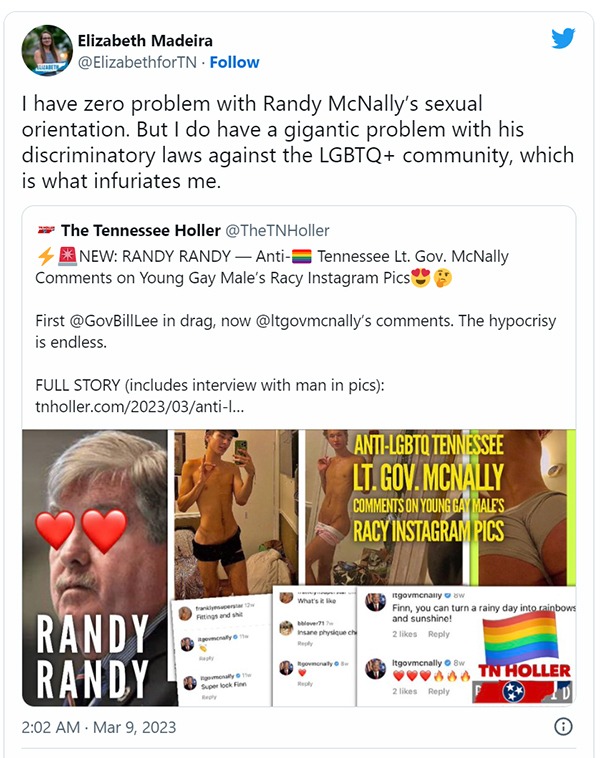Tennessee Lt. Gov. Randy McNally is a 79-year-old Republican lawmaker from Tennessee. McNally faced criticism last week after it was reported that he commented on Instagram photos. Nothing wrong with that, right? We all do it.
However, reports have revealed that McNally liked and commented on half-nude photos of a gay man whose account he follows. Also turns out he’s posted more than 80 comments on the man’s Instagram that date back as early as 2017. Serving in the legislature since 1978, McNally is being called out after years of supporting bills that restrict the rights of LGBTQ people in the state. The incident has raised concerns about hypocrisy and privacy in politics.
The gay man shared several photos of himself in various states of undress, prompting McNally to allegedly leave comments such as “hot” and “wow” on some of the posts.
Randy McNally is really, really sorry (he got caught)
Following the release of reports, McNally issued an apology, stating that he was “really, really sorry” for his behavior.
NewsChannel 5 Investigates asked McNally, “When people see these posts, what should they take away from them?”
“Well,” he answered, “I don’t know that they should take away a whole lot.”
“It’s that, you know, I, you know, try to encourage people with posts and try to, you know, help them if I can,” McNally said.
He was then asked, “Were you trying to help this young man in some sort of way?”
Randy Randy’s reply: “Just basically trying to encourage him.”
At least he’s not blaming an intern. However, his apology has not quelled the criticism of his actions.
McNally’s behavior and the subsequent controversy surrounding it have political implications. Given his history of supporting bills that restrict the rights of LGBTQ people in the state, all this has reignited discussions about the treatment of LGBTQ people in Tennessee and the role of politicians in shaping legislation that affects their rights.

In response to the criticism, McNally’s office released a statement saying that he was unaware that his comments would be seen by anyone other than the account owner. However, many have questioned the sincerity of his apology, pointing out that McNally has not shown any willingness to apologize for his past anti-LGBTQ actions.
The controversy surrounding McNally’s comments highlights the ongoing struggle for LGBTQ rights in Tennessee and the importance of privacy in politics. While some argue that the incident is a minor issue, it has opened up a larger discussion about the role of social media in politics and the need for lawmakers to uphold their values both in public and in private.
